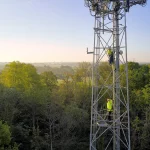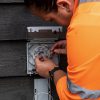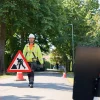New Guidelines on Accessing Emergency Services via Broadband VoIP
Ofcom has this week published their final guidance on how UK providers of Voice-over-Internet-Protocol (VoIP) or similar broadband-based phone services can ensure that their customers are still able to call the emergency services in a power cut.
At present the existing General Condition 3.1 (GC3.1) rule requires every communications provider to “take all necessary measures to maintain, to the greatest extent possible, the proper and effective functioning of its network at all times … and uninterrupted access to emergency organisations for their end-users.”
Traditional fixed line phone and mobile networks often employ a variety of different ways to ensure that access to the emergency services is maintained. For example, traditional copper telephone line connections are powered via the network (e.g. exchange) rather than your home or office (not that this helps much if the end-user is using many brands of DECT phone).
Advertisement
Over the next few years those older services will be retired and instead consumers are expected to gravitate toward VoIP phone solutions, which use a broadband connection to make calls. This could be particularly problematic if the broadband connection goes down in a power cut, unless additional measures are applied. Back in May 2018 Ofcom proposed four Principles to ensure that such providers met GC3.1.
The Four Principles
1. Providers should have at least one solution that enables access to emergency organisations for a minimum of one hour in the event of a power outage in the premises. In all cases, the duration of the protection being offered by the solution, including the amount of talk time, should be made clear to the customer.
2. The solution should be suitable for customers’ needs and should be offered free of charge to those who are at risk as they are dependent on their landline.
3. Providers should i) take steps to identify at risk customers and ii) engage in effective communications to ensure all customers understand the risk and eligibility criteria and can request the protection solution.
4. Providers should have a process to ensure that customers who move to a new house or whose circumstances change in some other way are aware of the risk and protection solution available.
The underlying requirements have not changed from the original proposals and Ofcom states that their guidance is “not intended to be the definitive guide on how providers should comply with the obligations“. Instead, the guidance sets out Ofcom’s “expectations” on the measures they should have in place to ensure customers making calls over broadband are able to make emergency calls in the event of a power cut at their premises.
Some “full fibre” (FTTP/H) broadband ISPs have been dealing with this sort of challenge for awhile, such as by installing Battery Backup Units (BBU) alongside their customer equipment. The regulator also notes that many people will have access to alternative methods of calling, such as mobile phones, and thus their guidance is mostly focused upon tackling the most vulnerable users (e.g. those who live in areas where mobile signals may be poor or protracted power cuts are common).
However the new guidance does still leave somewhat of a grey area, particularly with respect to dedicated VoIP providers (e.g. Vonage) that are dependent upon the stability of other physical broadband networks that are outside of their control (i.e. where a direct relationship between the different providers may not exist).
Advertisement
Magrathea, Vonage, Gigaclear and ITSPA argued that a lack of clarity on where responsibility lay created a risk that customers would not receive adequate protection. Meanwhile others thought Ofcom’s suggestion that voice services and network providers should work together was not practical since there was generally no established relationship between them.
Ofcom disagreed and said that each side “should be mindful of the other when they are designing their processes and communications,” although the regulator is in future planning to facilitate further industry discussion over this point.
Ofcom’s Guidance on Protecting Access to Emergency Services
https://www.ofcom.org.uk/../guidance-emergency-access-power-cut.pdf
Mark is a professional technology writer, IT consultant and computer engineer from Dorset (England), he also founded ISPreview in 1999 and enjoys analysing the latest telecoms and broadband developments. Find me on X (Twitter), Mastodon, Facebook, BlueSky, Threads.net and Linkedin.
« ISP Hyperoptic Discounts UK Business Full Fibre Broadband Prices

















































Comments are closed